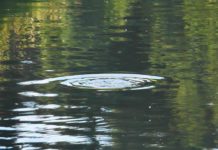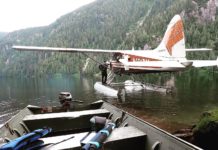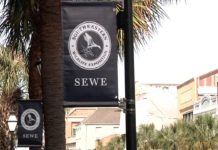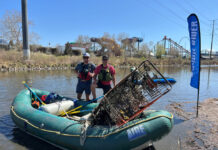utectmushroom
Photo courtesy of Bud Utecht
A rare cerulean blue mushroom was found in the Jo Mary Lake area by sporting camp operator Bud Utecht and two of his clients during a trout fishing trek in 2021.
Photo courtesy of Bud Utecht
A rare cerulean blue mushroom was found in the Jo Mary Lake area by sporting camp operator Bud Utecht and two of his clients during a trout fishing trek in 2021.
By V. Paul Reynolds
Covid preoccupations notwithstanding, this past year in Maine was unusual in more ways than one.
By V. Paul Reynolds
Covid preoccupations notwithstanding, this past year in Maine was unusual in more ways than one.
An extremely rare, and most colorful, mushroom was found in the North Woods. And along the coast of the Pine Tree State, the sighting of a highly rare Russian raptor created quite a buzz in the bird watching community.
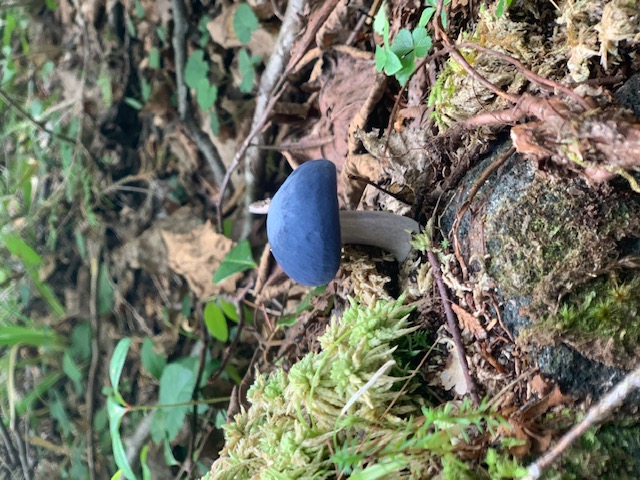
A rare cerulean blue mushroom was found in the Jo Mary Lake area by sporting camp operator Bud Utecht and two of his clients during a trout fishing trek in 2021.
Entoloma Indigoferum. This rarest of rare cerulean blue mushroom was discovered in the Jo Mary Lake area by Northwoods Sporting Journal columnist and sporting camp operator Bud Utecht and two of his clients during a trout fishing trek. With the help of his daughter, Tara, Utecht’s research revealed that this is one of 20 of the rarest mushrooms in the country, never before found in Maine! First discovered in the 1870s, the next recorded sighting of the fungi was in the New Jersey Pine Barrens in 2013.
With great care, Utecht harvested the specimen and turned it over to the University of Maine, where it now resides in UMO’s herbarium. Revisiting the “harvest site,” Utecht discovered another of the rare mushrooms, but let it be.
Where, exactly, was it found, you ask? The finder’s lips are sealed.
Enter 2021’s rare find number two: a Steller’s sea eagle. This raptor, one of the largest birds of prey on the planet, is rare even on its home ground, the Kamchatka Peninsula in Siberia. To find it soaring 5,000 miles away from home near Boothbay Harbor and other places along the Maine coast is, for a birder, more exciting than winning the Maine Lottery. According to Maine wildlife biologist Mark McCollough, the Steller’s sea eagle can weigh up to 21 lbs and has an 8-foot wingspan.
The Russian raptor, which has a unique identification spot on its wing, has been seen in Alaska and the Maritime Provinces as well. As McCollough points out “this is a honkin’ bird” that apparently likes to travel.
Interestingly enough, as well as being a drifter, the wandering sea eagle may also be a Lothario with wings. He is believed to have mated with a Bald eagle during one of his stopovers in Taunton, Mass.
The big question of course on the minds of Maine birders is whether this magnificent sea eagle will elect to put down roots here, or fly on back to Siberia.
The author is editor of the “Northwoods Sporting Journal.” He is also a Maine guide and host of a weekly radio program — “Maine Outdoors” — heard Sundays at 7 p.m. on “The Voice of Maine News – Talk Network.” He has authored three books; online purchase information is available at www.maineoutdoorpublications.com. or www.sportingjournal.com. Contact email — vpaulr@tds.net.
Thank you for reading your 4 free articles this month. To continue
reading, and support local, rural journalism, please subscribe.
Credit: Source link






















